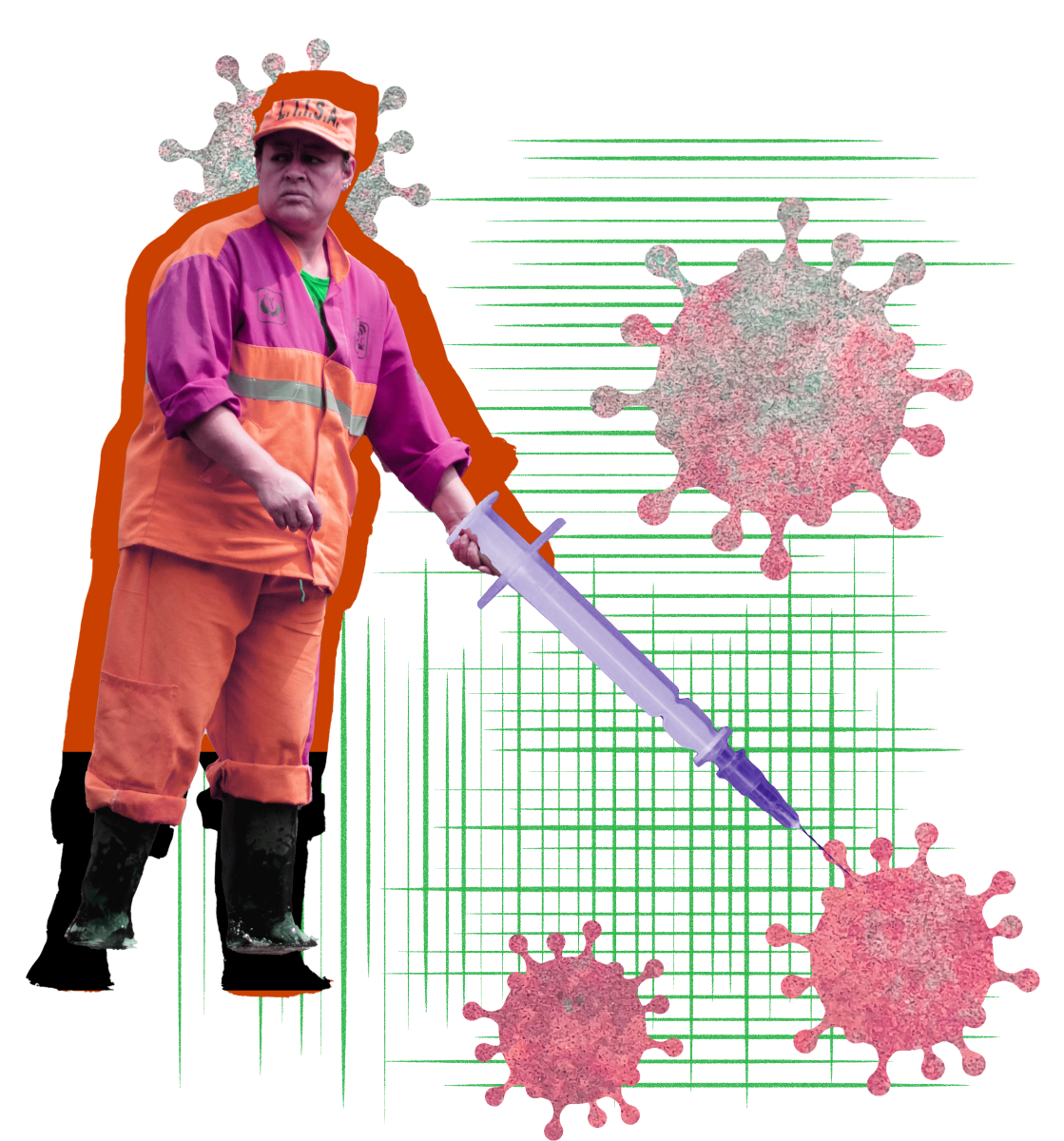As many jobs have gone remote and classrooms have gone online due to COVID-19, student organizations are also learning to go virtual. The social distancing regulations of the pandemic have impacted clubs in a myriad of ways, ranging from recruitment, to activities, to meetings. However, each organization, ranging from sports, to arts and to academics, has quickly adapted to the online semester in their own unique way.
“Like most other clubs, our primary way to recruit was through the Virtual Involvement Fair,” said Thinuri Fernando, a junior biomedical engineer major and the vice president of Engineers Without Borders (EWB). “I don’t think it was much different from when it was in person because we were able to get a decent turnout.”
The Virtual Student Involvement Fair was conducted on Sept. 2 via Airmeet, a virtual platform that simulates conferences and meetups through online tables with built-in video conferencing. Other clubs recruited through a combination of active social media presence and mailing lists. While recruitment may have been straightforward for EWB, transitioning their club meetings and activities to become fully virtual has been more challenging.
“Our projects involve a lot of collaboration and it’s much easier to do that in person. We used to meet for about 1-2 hours and work on things together,” said Fernando, the EWB vice president. “But with everything being online, more work will be done independently and meetings will be held to share and discuss what we’ve worked on. We were also planning to make an assessment trip to Ecuador this summer to visit the community we are working with to collect more data, but we had to postpone that trip due to travel restrictions. So we’ve had to rely on local non-government organizations to help us collect more data.”
Similarly, although several other organizations have had in-person activities planned, they have also learned to adapt to a virtual environment. Nada Aly, a junior computer science major and the Art Club president, reflected on how her student organization changed this semester.
“Due to COVID-19, we need to keep things simple like drawing on the computer, offering weekly drawing challenges, etc. It’s a real shame though, we had some cool events planned and now we’re struggling to meet the budget requirement set by Senate since we can’t have in-person events. Most of the members and e-board are not on campus, so we were limited to doing online activities,” said Aly. “The e-board also uses Discord now to talk instead of the office on campus. The office on campus now is more or less a storage room until things get better.”
“We started using Drawpile, a software that allows multiple people to draw on one canvas. We’ve also hosted Chat & Learn on Discord, where Tutors and members of the e-board shared their screens and helped members with drawing tips & questions. Sometimes we do lectures on topics such as composition, brushwork, etc. …On the other hand, other clubs on campus have been contacting us in regards to co-hosting in-person events and offering a helping hand which is really nice of them.”
Discord has blossomed in popularity among student organizations at NJIT. More than twenty student organizations have relied on Discord servers for some form of communication.

“One of the newer E-board members recommended that we use Discord to connect with one another as well as connect with the group members,” said Alexander Nilsson, a senior business major and the president of Archery Club. “And this has allowed us to have better contact with the group members and people who are interested in the club. It has also made the process of sharing information regarding archery to those who want to know more about getting equipment or finding instructional videos.”
Archery Club no longer has meetings or practices, currently only engaging in weekly executive board meetings online. Nilsson notes that this is not the first time Archery Club has been on hold, as they were also unable to conduct meetings during the construction of the Wellness and Events Center. “This has then caused the number of new members to stagnate.”
Like EWB and Archery Club, the Student Activities Council (SAC) is another organization that has transitioned fully online.
“We have completely transformed the way we run events, going completely virtual for the fall semester. We’ve shifted our in-person meetings to WebEx and look to recruit people through our social media presence,” said SAC president Jay Rana, a senior majoring in computer science. “Instead of students picking up supplies, some of our events will involve students giving us their addresses and we can ship the supplies directly to them! We also are actively trying to conduct more meaningful giveaways since we understand this a tough time for students.”
“We have several Discord events and large-scale virtual events planned, including Among Us (Sept.26), Skribbl.io (Sept.30), the Halloween edition of THE WIN FROM HOME VIRTUAL SHOW hosted by magician and comedian Joseph Tran (Oct. 14), a game night (Oct. 21), and a Halloween-themed escape room,” said SAC vice president Juliana Yang, a senior biomedical engineering student. “Shoutout to our event coordinators Patrick Krawczyk and Venkatesh Kunduru for working diligently to plan these events.”
Meanwhile, the Society of Musical Arts (SOMA) has been operating in a hybrid of virtual activities and socially distant in-person practices.
“Practices have either been held virtually or in a socially distant setting where bells are covered and masks worn as much as possible and with a limited number of people. Performances of all our groups will be recorded and distributed online to showcase the talent and hard work of our members. Meetings and leadership have gone very well despite being online,” said Devin Romanoff, SOMA president and a senior computer science major. “In person, we have limited rehearsals, but that’s it. We want to make sure our members can participate and make music, especially in a time where an outlet from the stresses of school and life in general is so useful. To make sure our members can keep participating, moving our operations to virtual settings is a necessary sacrifice.”
“SOMA has been focused on developing virtual events to accommodate for current circumstances, as well as accommodating those musicians who go to in person practices. The different ensembles are split into sections of practice, but the string ensemble does everything online,” said Luis Medina, SOMA booking manager and a junior chemical engineering major. Online content that SOMA is working on include virtual open mic nights, a podcast about music and recordings of performances to be distributed to the student body.
Despite their differing disciplines, ranging from arts to athletics to academics, one thing all the clubs have in common is their dedication and determination to not let COVID-19 deter them from their goals. In the end they all transitioned to be more online savvy, be it through WebEx, Discord, Slack or some other combination of online platforms.
“We still want to help our members and offer them the same experience they would have in-person activities to the best of our ability,” said Aly, Art Club president. “We still want to offer our services and help beautify the NJIT campus and the general Newark area. Most importantly, we want to offer relief to the members who are experiencing the struggles of online classes during this time.”
“Virtual or not, we are continuing to deliver on our motto ‘Less Stress, More Fun,’” said Rana, SAC president. “Our goal this semester is to reach as many students as possible to ensure they take breaks from the stresses of the world and have fun at one of our events.”








































